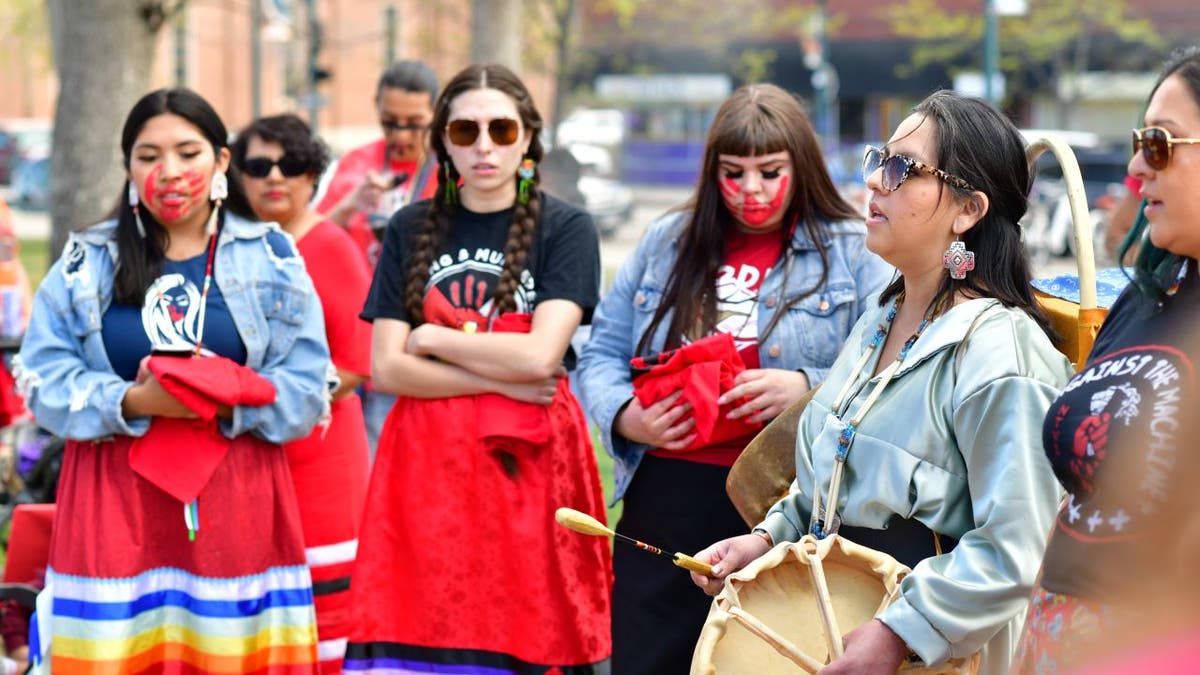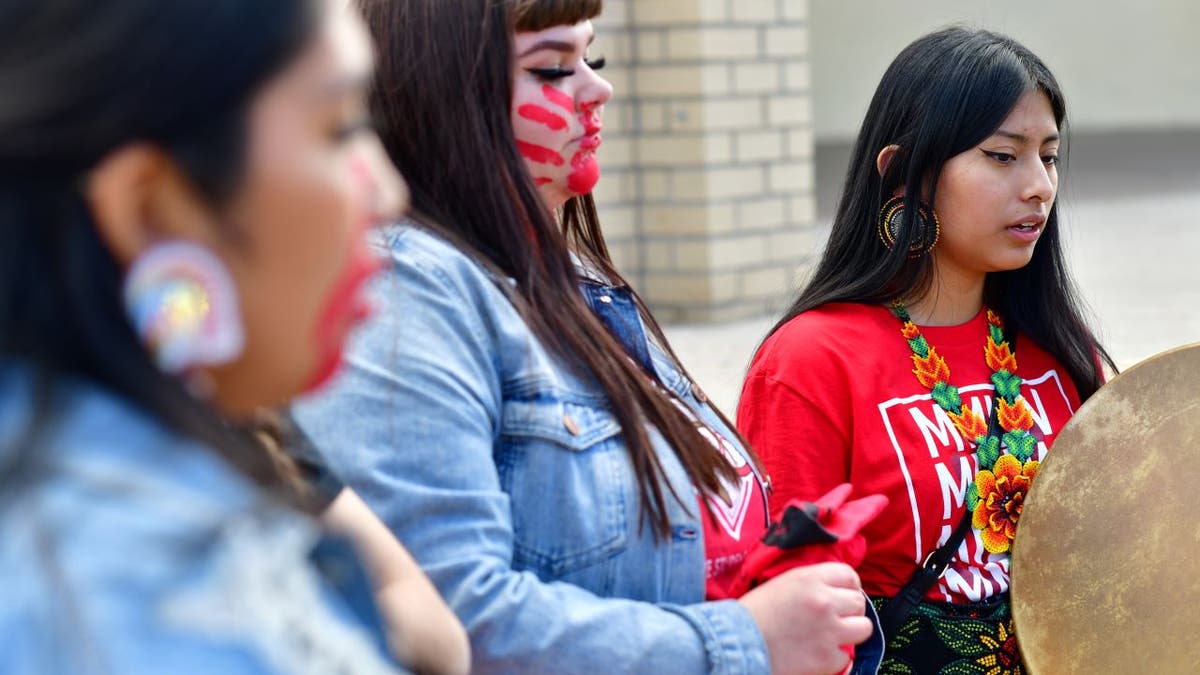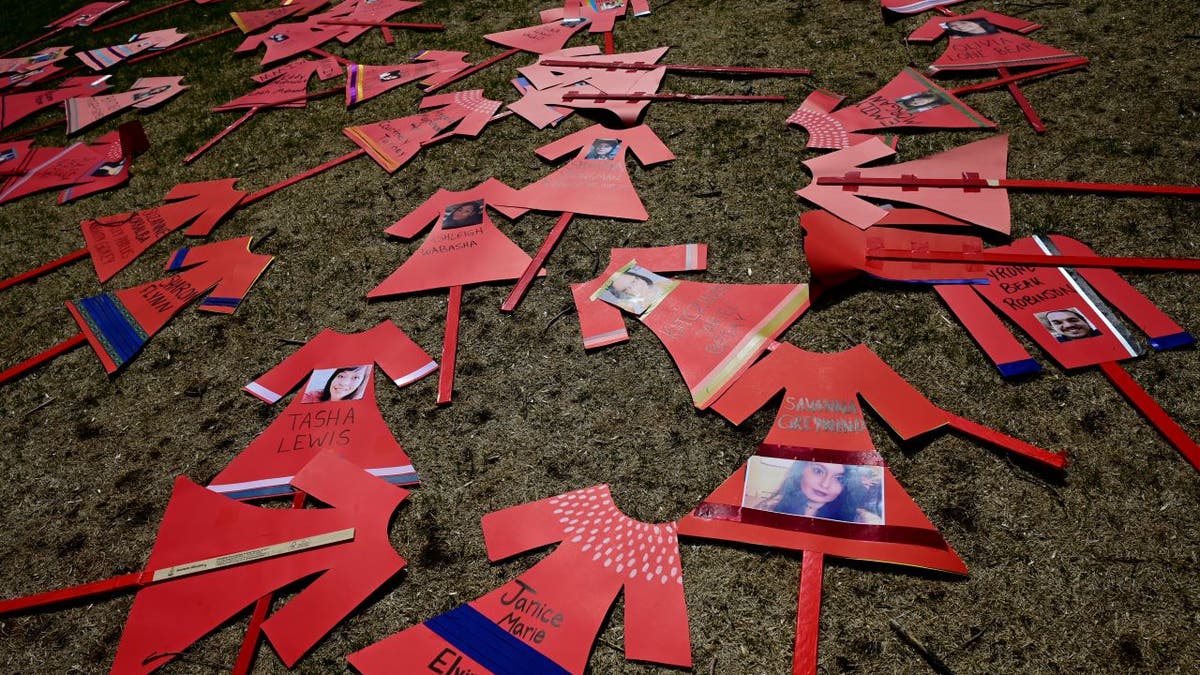Elizabeth Smart helps launch new technology to find missing persons
The kidnapping survivor and child safety activist is partnering with Portland-based tech company Q5id to launch the "Guardian" app nationwide.
A Native American man was found dead after he became the first person featured in a new Colorado platform aimed at finding missing Indigenous people.
Wanbli Vigil, a 27-year-old Lakota man, went missing on Dec. 29, which was the day before Colorado’s new Missing Indigenous Person Alerts system went live, CBS News reported.
An alert was issued Jan. 3 and his body was found three days later in a discovery police said does "not appear to be suspicious in nature at this time."
Although the alert was not able to save the life of Vigil and some have raised questions as to why the alert was not triggered sooner, experts hope the new system will help solve a disproportionate amount of missing persons cases in Native American communities.

A rally and march in honor of National Day of Awareness for Missing and Murdered Indigenous Relatives Day at Acacia Park in Colorado Springs, Colorado, on May 5, 2022. (Hyoung Chang/MediaNews Group/The Denver Post via Getty Images)
"It just feels like we're always put on the back burner," Daisy Bluestar, a member of the Southern Ute tribe and advocate for the system, told Colorado Public Radio.
Native Americans, according to data from the National Crime Information Center, make up a disproportionate share of missing persons cases in the United States and make up more than 9,500 reported cases since 2020.
Vigil is believed to be the 69th Indigenous person from Colorado to go missing or be murdered since 1977.
Additionally, CBS News reported that more than 82% of Indigenous people in the United States, both male and female, reported that they have experienced violent victimization as domestic violence continues to be an issue plaguing the Native American community.
BIDEN ADMIN RENAMES 5 PLACES THAT USED 'HARMFUL' TERM FOR NATIVE AMERICAN WOMEN

Darling Perez Ramos, right, and her friends pray and sing at a National Day of Awareness for Missing and Murdered Indigenous Relatives Day at Acacia Park in Colorado Springs, Colorado, on May 5, 2022. (Hyoung Chang/MediaNews Group/The Denver Post via Getty Images)
Colorado recently became the second state in the nation to enact an alert system specifically aimed at finding missing Indigenous people to combat a growing problem in that community.
A similar program in Washington state has shown early results, with two dozen missing persons cases resolved within a six-month period, according to Colorado Public Radio.
"It’s been extremely effective because you can’t find someone unless you know they are missing," Patti Gosch, a tribal liaison with the Washington State Patrol, told the outlet.
Colorado's new system requires local law enforcement to notify the Colorado Bureau of Investigations to request a Missing Indigenous Person Alert that goes out statewide within eight hours for a missing adult and two hours for a missing child.

Missing persons sign are placed for a rally and march at Acacia Park in Colorado Springs, Colorado, on May 5, 2022. (Hyoung Chang/MediaNews Group/The Denver Post via Getty Images)
"Once a MIPA is activated, Colorado law enforcement will be notified electronically, while the media, stakeholders and others may distribute the information via email and text to its current list of alert subscribers," the Colorado Department of Public Safety said in a news release.
The state Department of Transportation will display known vehicle information on alert signs across the state in addition "to notifying the media and asking them to distribute to their audiences," the release said.
"Some of our tribal communities are actually closer to an Albuquerque media outlet than they would be to the Denver outlet, for example," Audrey Simkins of the Colorado Department of Public Safety told Colorado Public Radio. "So we need to kind of think outside the box and make sure that we're reaching out to our partners who are in our neighboring states."
MISSING MASSACHUSETTS WOMAN BRITTANY TEE LAST SEEN A WEEK AGO: POLICE
Supporters say the system will shine a brighter light on time sensitive cases, address communication breakdowns between tribal, local and state law enforcement, and bring more media attention to cases.
The Colorado program also created a state office with a half-million dollar budget that will aim to solve cold cases in the Indigenous community.
"It’s important that we take every step we can to bring some resolution to these cases," Arron Julian, director of Colorado’s Office of Liaison for Missing or Murdered Indigenous Relatives, said.
CLICK HERE TO GET THE FOX NEWS APP
The CBI told Fox News Digital that the new system is just one of many tools at the disposal of law enforcement and still relies on quick coordination among agencies. The agency also said two MIPA alerts have been issued on the new system, the one for Vigil and another for a missing Indigenous teen that was canceled after the teen was located.
"The CBI understands the importance and effectiveness of the various alerts that are in place in Colorado, and we are pleased to have been asked to develop this newest alert in an effort to quickly locate missing indigenous persons and return them safely to their loved ones," said CBI Director John Camper.










































